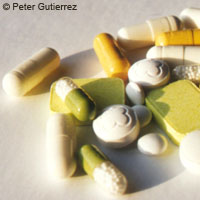Experts call for tighter safety procedures for human drug trials
A group of experts has called for more rigorous controls of early stage human trials of high risk drugs. The Expert Scientific Group (ESG) was convened earlier this year, following the trial of a new drug, TGN1412, which left six previously healthy volunteers fighting for their lives. TGN1412 is a monoclonal antibody which works by stimulating the immune system. It was designed by German drug firm TeGenero to treat rheumatoid arthritis, leukaemia and multiple sclerosis. The purpose of the trial, which was held in the UK, was to test for side effects; it was the first time the drug had been administered to humans. According to TeGenero, tests in animals, including primates, had not resulted in any adverse reactions like those experienced by the human testers. The dose administered was also extremely low. Although all six volunteers have now left hospital, concerns remain regarding the long-term effects of the trial on their health, and at least one volunteer could lose all his toes and some of his fingers. The ESG was established by the UK Secretary of State for Health to look at how to improve the safety of drug trials involving products similar to TGN1412. 'Clinical trials in general have an excellent safety record, but in the light of the TGN1412 incident there is a need to look at the future safety of clinical trials involving novel and potentially higher risk drugs,' commented Professor Gordon Duff, the Chair of the ESG. The group recommends that in trials of this type, the first dose should be given to one person only, leaving sufficient time for any adverse reactions to develop before further doses or administration to other people. Furthermore, the experts note that in cases where the drug affects the immune system, it may be better to carry out first studies on patients being treated for the disease, rather than healthy volunteers. The report also calls for greater cooperation between industry and regulators to share information on adverse reactions to drugs. Although there is now an EU database of suspected, unexpected, serious adverse reactions to drugs in trials, there is currently neither access to information about trials that were halted for safety reasons in the past, nor any international data source. The expert group hopes that by sharing data more, researchers will be able to avoid duplication of drug development and trials. They also suggest that specialist centres should be developed to carry out early stage studies on higher risk agents. The report was welcomed by lawyers representing the six men who were injured by the drug. 'I am encouraged by the recommendations put forward by the expert group for consultation,' said clinical negligence solicitor Auriana Griffiths who is representing two of the men. 'I am pleased that the report has set out a number of very sensible and vital recommendations to help protect the safety of participants in clinical drug trials.' Professor Colin Blakemore, Head of the UK's Medical Research Council underlined that although giving drugs to the people for the first time would always involve an element of risk, it was incumbent on scientists and doctors to try and reduce that risk. 'There are marvellous discoveries being made in basic research which promise to fight diseases better,' he said. 'Phase One trials are central to the process of turning those discoveries into clinical care but we must ensure that trials are rigorously scrutinised as potential new therapies emerge.'
Countries
United Kingdom



